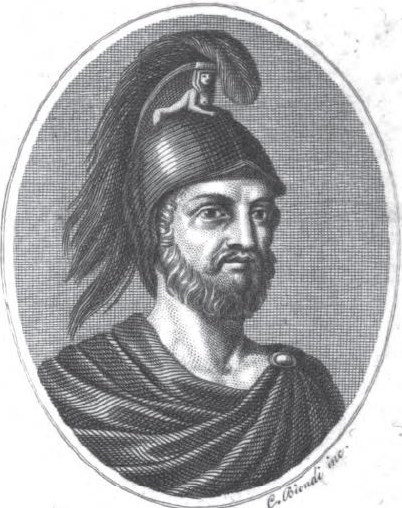Philistus on:
[Wikipedia]
[Google]
[Amazon]
 Philistus ( grc-gre, Φίλιστος; c. 432 – 356 BC), son of Archomenidas, was a Greek historian from
Philistus ( grc-gre, Φίλιστος; c. 432 – 356 BC), son of Archomenidas, was a Greek historian from
 Philistus ( grc-gre, Φίλιστος; c. 432 – 356 BC), son of Archomenidas, was a Greek historian from
Philistus ( grc-gre, Φίλιστος; c. 432 – 356 BC), son of Archomenidas, was a Greek historian from Sicily
(man) it, Siciliana (woman)
, population_note =
, population_blank1_title =
, population_blank1 =
, demographics_type1 = Ethnicity
, demographics1_footnotes =
, demographi ...
. Life
Philistus was born in Syracuse around the time the Peloponnesian War began. He was a faithful supporter of the elder Dionysius, and commander of the citadel.Cicero
Marcus Tullius Cicero ( ; ; 3 January 106 BC – 7 December 43 BC) was a Roman statesman, lawyer, scholar, philosopher, and academic skeptic, who tried to uphold optimate principles during the political crises that led to the esta ...
, who had a high opinion of his work, called him the miniature Thucydides
Thucydides (; grc, , }; BC) was an Athenian historian and general. His '' History of the Peloponnesian War'' recounts the fifth-century BC war between Sparta and Athens until the year 411 BC. Thucydides has been dubbed the father of " scienti ...
(''pusillus Thucydides''). He was admitted by the Alexandria
Alexandria ( or ; ar, ٱلْإِسْكَنْدَرِيَّةُ ; grc-gre, Αλεξάνδρεια, Alexándria) is the second largest city in Egypt, and the largest city on the Mediterranean coast. Founded in by Alexander the Great, Alexandri ...
n critics into the canon of historiographer
Historiography is the study of the methods of historians in developing history as an academic discipline, and by extension is any body of historical work on a particular subject. The historiography of a specific topic covers how historians hav ...
s, and his work was highly valued by Alexander the Great
Alexander III of Macedon ( grc, Ἀλέξανδρος, Alexandros; 20/21 July 356 BC – 10/11 June 323 BC), commonly known as Alexander the Great, was a king of the ancient Greek kingdom of Macedon. He succeeded his father Philip II to ...
.
Philistus was quite wealthy. Before his rise to power, Dionysius criticized the generals of Syracuse on their poor performance against the Carthaginians. When the assembly fined Dionysius for his seditious language, Philistus stepped in to pay Dionysius' fines, with the promise to continue paying for them so long as the council saw fit to issue them. It was through Philistus' support that Dionysius was able to rise to power and control Syracuse.
In 386 BC, Philistus married the daughter of Leptines, who was Dionysius' brother. Because Dionysius had not been consulted, he feared that his brother and Philistus would form an alliance against him. So Dionysius exiled both from Syracuse. Philistus settled at Thurii
Thurii (; grc-gre, Θούριοι, Thoúrioi), called also by some Latin writers Thurium (compare grc-gre, Θούριον in Ptolemy), for a time also Copia and Copiae, was a city of Magna Graecia, situated on the Tarentine gulf, within a sho ...
but afterwards moved to Adria
Adria is a town and ''comune'' in the province of Rovigo in the Veneto region of northern Italy, situated between the mouths of the rivers Adige and Po River, Po. The remains of the Etruria, Etruscan city of Atria or Hatria are to be found below ...
, where he remained until the death of Dionysius in 367 BC. During his stay at Adria, Philistus occupied himself with the composition of his history of Sicily in eleven books. The first part comprised the history of the island from the earliest times to the capture of Agrigentum
Agrigento (; scn, Girgenti or ; grc, Ἀκράγας, translit=Akrágas; la, Agrigentum or ; ar, كركنت, Kirkant, or ''Jirjant'') is a city on the southern coast of Sicily, Italy and capital of the province of Agrigento. It was one o ...
by the Carthaginians
The Punic people, or western Phoenicians, were a Semitic people in the Western Mediterranean who migrated from Tyre, Phoenicia to North Africa during the Early Iron Age. In modern scholarship, the term ''Punic'' – the Latin equivalent of the ...
(406 BC); the second, the history of the elder and the younger Dionysius (down to 363 BC). From this point the work was carried on by Athanas.
Philistus was then recalled by the younger Dionysius, whom he persuaded to dismiss Plato
Plato ( ; grc-gre, Πλάτων ; 428/427 or 424/423 – 348/347 BC) was a Greek philosopher born in Athens during the Classical period in Ancient Greece. He founded the Platonist school of thought and the Academy, the first institution ...
and Dion.Plutarch: ''Life of Dion'', ch. 11-16. When Dion set sail from Zacynthus
Zakynthos (also spelled Zakinthos; el, Ζάκυνθος, Zákynthos ; it, Zacinto ) or Zante (, , ; el, Τζάντε, Tzánte ; from the Venetian form) is a Greek island in the Ionian Sea. It is the third largest of the Ionian Islands. Zak ...
with the object of liberating Syracuse in 356 BC, Philistus was entrusted by Dionysius II with the command of the fleet. After a lengthy sea battle, his ship was surrounded. Philistus took his own life to avoid retribution from his countrymen.
Notes
References
* {{DEFAULTSORT:Philistus 430s BC births 356 BC deaths Classical-era Greek historians Ancient Syracusans 5th-century BC Syracusans 4th-century BC Syracusans 4th-century BC historians Historians from Magna Graecia Ancient Greeks who committed suicide